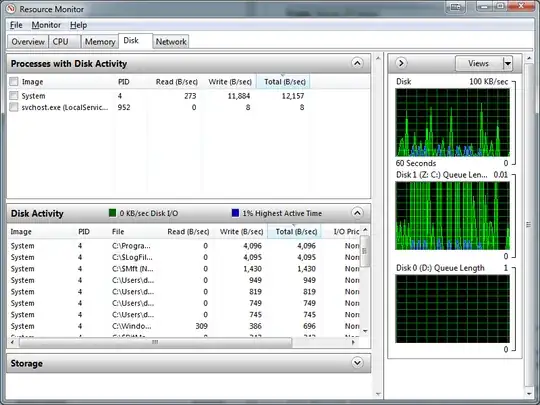I was debating with guys about necessity of SSD for me.
I'm Salesforce Developer. My tools are Eclipse, Firefox/Chrome, Git. Eclipse does only editing files, saving them locally and sends them to cloud, gets them back. So no code compiling or heavy servers on my local machine. I start Windows 7 on Monday and restart it when new updates are installed and Windows need to be restarted to apply updates.
Basically, I don't care about how fast apps are starting. I don't care about temperature, energy consuming, noise, etc. I have Dell laptop with i5, 16GB RAM and 2.5-Inch 500GB 7200RPM SATA III 32MB Cache SATA 6Gbps HDD. I saw, that my PC uses max 5-7GB of RAM. So I thought, why do I might need and SSD when I have free 10GB of RAM.
So, guys said, that all apps read/write stuff on HDD even if you have a lot of free RAM. Is this true? How to check what is written/read to/from HDD during my work?
EDIT1:
I don't use swap or page file in my Win 7 64.
